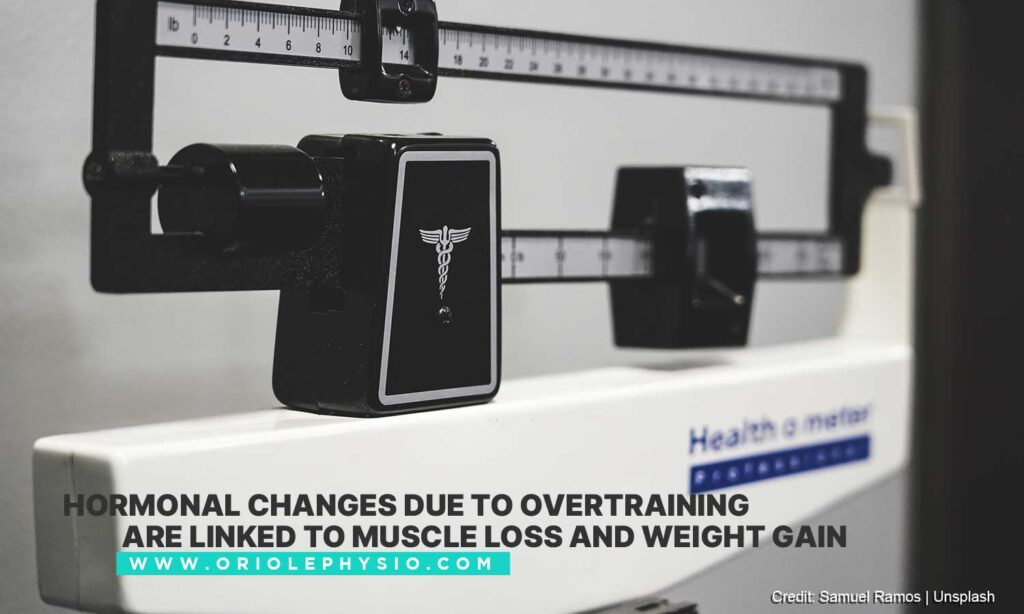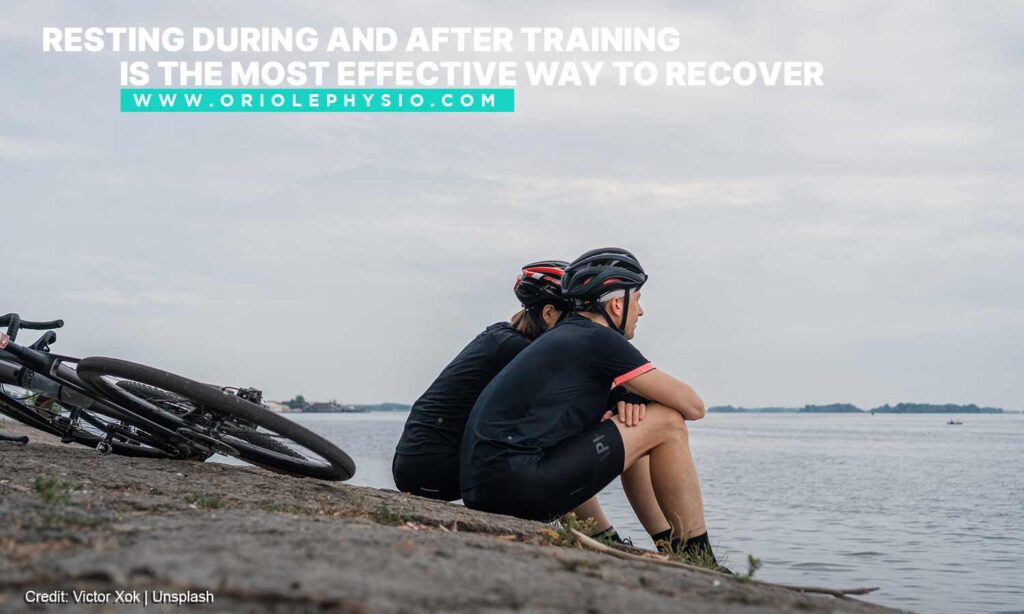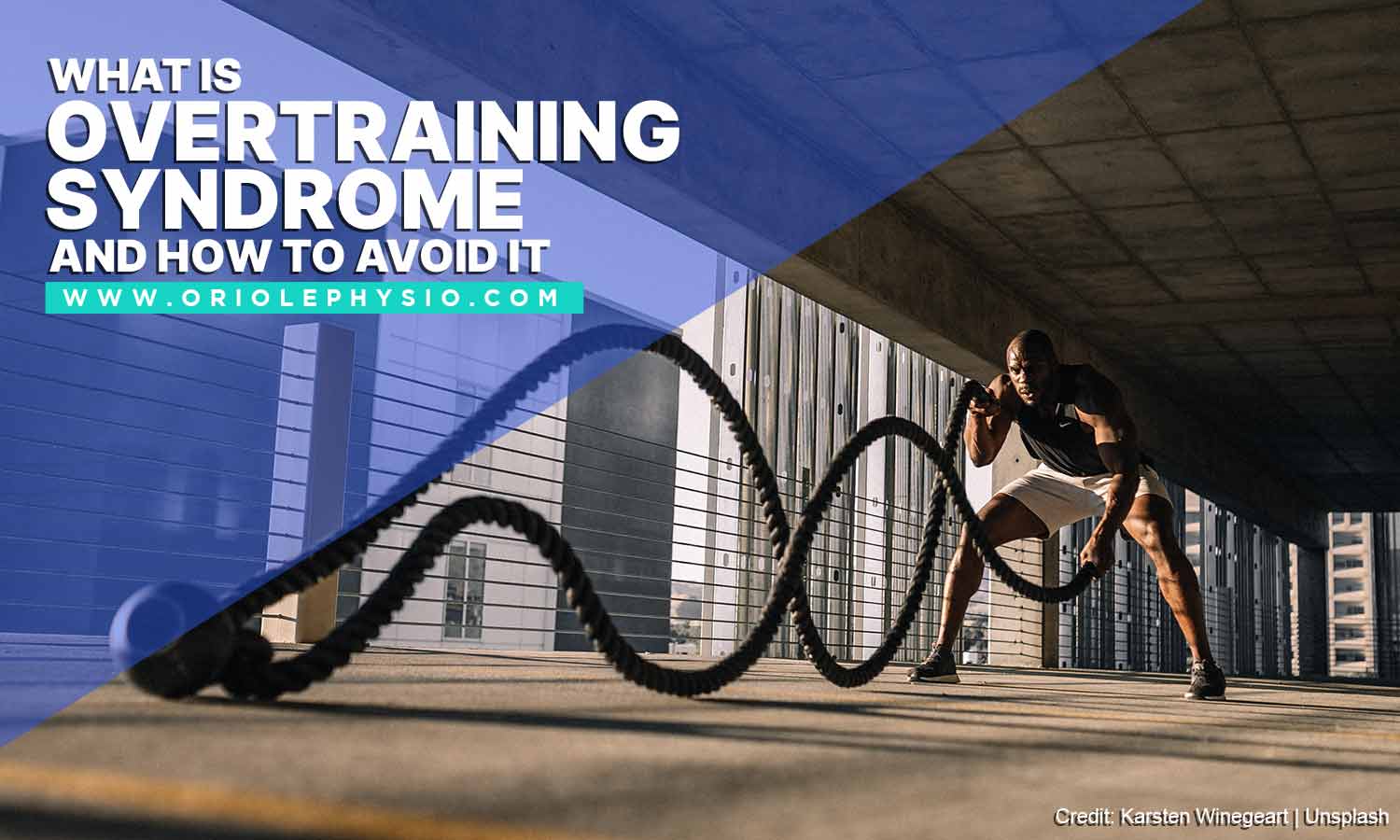What Is Overtraining Syndrome and How to Avoid It
“Give your hundred and ten percent” and “no pain, no gain” are great mantras to motivate yourself to achieve your goals. Unfortunately, some people train beyond their physical and mental limits and end up doing more harm to their bodies than good.
Overtraining is a real possibility, and it poses a great danger to your health. Training hard is generally accepted to improve your skills, but it must be done so without sacrificing your state of mind and body.
Anyone who is exhausted, hurting, and discouraged after an intense workout may be experiencing what is called Overtraining Syndrome.
What Is Overtraining Syndrome?
Overtraining Syndrome is a condition where the body gets overly exercised without providing enough recovery time in between sessions. It frequently occurs in athletes who are training for a competition or event without adequate rest. Rather than proper conditioning and balancing of training and recovery, there’s instead too much overload and too little rest. In the end, the regimen backfires and decreases their performance.
What Are the Signs and Symptoms of Overtraining Syndrome?
Overtraining syndrome manifests both physically and psychologically. The primary warning sign is an unusual feeling of exhaustion, but many are extremely subtle that it may only be noticeable late in the game.

- Soreness, strain, and pain
Muscle aches are normal after workouts, but extended muscle soreness and joint pain is a sign that you’ve pushed past your limits. Overstressing your body can cause microtears in your muscles, which could be the reason why it takes longer for your body to heal and recoup.
- Persistent injuries
An overuse injury is caused by repetitive trauma in your muscles and joints. Excessive high-impact exercise, like running, lifting, or jumping, inflames, wears, and tears your body. With limited rest between sessions, you are not allowing yourself to heal.
Overuse injuries include shin splints, stress fractures, tendonitis, and plantar fasciitis.
- Decreased appetite
Exercise usually promotes a healthy appetite. However, too much of it can cause hormonal imbalances, influencing how hungry or full you feel. Cutting back your diet can negatively affect your body as it draws its energy and nutrients from your food. You may even lose weight in the process.
In the long run, not eating enough can lead to a cardiovascular or gastrointestinal problem. It can complicate your nervous or reproductive system. Women athletes may even experience a period of loss or irregular cycles.
- Decreased immunity

It is widely accepted that exercise boosts immunity. However, recent studies found that those who participate in intensive exercise have shown an increased risk of illness. While scientists are still conducting more research to definitively understand the link, the current results suggest that sustained bouts of high-intensity training can compromise the immune system. Athletes and other high-performance personnel, like the military, tend to contract upper respiratory tract infections, latent viral reactivation, and impaired immune responses to vaccines.
- Insomnia
You may find it hard to relax and fall asleep because of increased stress hormones. Insomnia keeps your body from resting and repairing itself during sleep.
Lack of quality sleep will also lead to other issues, such as chronic fatigue and mood changes.
- Fatigue
It’s a given that you’ll feel somewhat tired after an exercise, but fatigue is a result when your body hasn’t fully recovered after your workout. It isn’t the same as feeling sleepy. Fatigue may entail restlessness, lack of motivation, increased temperature, or trouble falling or staying asleep.
Fatigue can also happen when you don’t get enough fuel before you train. When this happens, your body has to use its carbohydrate, protein, and fat reserves for energy.
- Irritability and agitation
Moodiness, irritability, and to an extreme extent, depression are all recognized symptoms of overtraining syndrome. Overloading yourself affects your stress hormones, which causes emotional and behavioural issues. Restlessness and lack of concentration and enthusiasm also accompany overtraining.
- Weight gain

Another surprising effect of overtraining syndrome is weight gain. Although weight loss is also a sign and more expected result of exercise, stress-related hormonal fluctuations make weight loss harder. Overtraining and physically demanding activities without rest can lead to decreased testosterone levels and high levels of cortisol, changes which are often associated with loss of muscle tissues, weight gain, and excess belly fat.
- Reduced training capacity or intensity
When you have Overtraining Syndrome, you may feel like your workouts have become more difficult and more challenging to finish. This could give you the false assumption that you’re working harder, when in fact, your body efficiency has decreased dramatically.
Your heart rate and resting heart rate will also increase. As a result, your organs and tissues will receive less oxygen, and you may encounter shortness of breath and light-headedness.
- Performance decline
Finally, overtraining can cause you to achieve the opposite of your intended goals. Your performance may end up plateauing or decreasing rather than improving. The combination of some or all of these symptoms results in reduced strength, agility, and endurance. A sudden drop in your performance should be your clue to balance out your activities and rest.
How to Recover from Overtraining Syndrome?
Fortunately, treating and recovering from every single symptom of Overtraining Syndrome are simple. It starts with changing your workout habits. Recognizing that training is only a part of the journey and that rest is equally important is a good place to start.
- Take a break

Giving yourself a complete rest is one effective way to recover from Overtraining Syndrome. Know when to take a break and have ample time in between training to relax. The amount of rest required depends on the length, intensity, and type of training. The harder you train, the longer you need to recover. Don’t cut recovery time even when you feel the compulsive need to exercise. It’s for your own good.
- Avoid monotonous training activities
Change your routine from time to time. As much as possible, avoid overdoing the same training activities to allow certain parts of your body to rest and avoid overuse injuries.
It is also highly advisable to do cross-training, not only does it help you develop a new set of skills but it also varies the stress placed on specific muscles. For example, you can do biking and swimming this week, and then, running and weightlifting for the next.
- Avoid a sudden increase in training
Another means to avoid overtraining is by avoiding a sudden increase in training intensities. Do it in gradual phases to allow your body to properly adjust and recover with the changes. It also helps to keep a fitness log, so you can track your progress, time, and diet, among others.
- Listen to your body
It is always easy to overestimate the limits of your body. As a result, we keep pushing and pushing until it’s too late. Listen to your body and look out for warning signs.
-
- Are you sweating more than usual?
- Are you pushing yourself harder than normal?
- Have you taken any breaks?
- Do you feel unusually weak, sore, or ill?
- Go for a professional massage

Seeking physical therapy has huge benefits to those recovering from intense workouts, surgery, and injuries. A trained therapist can target affected muscles to prevent further issues, relieve tension, and facilitate healing.
Recovery from Overtraining Syndrome may vary from weeks to months, depending on the activity. It is also recommended to see a trained professional who will guide you through the healing process.
Oriole Physiotherapy and Rehabilitation Centre, Inc. is one of the trusted providers of physiotherapy and sports injury recovery services in North York. Our team of medical professionals is ready to assist you on your road to recovery. For more inquiries, call us at (416) 221-0772 today.

